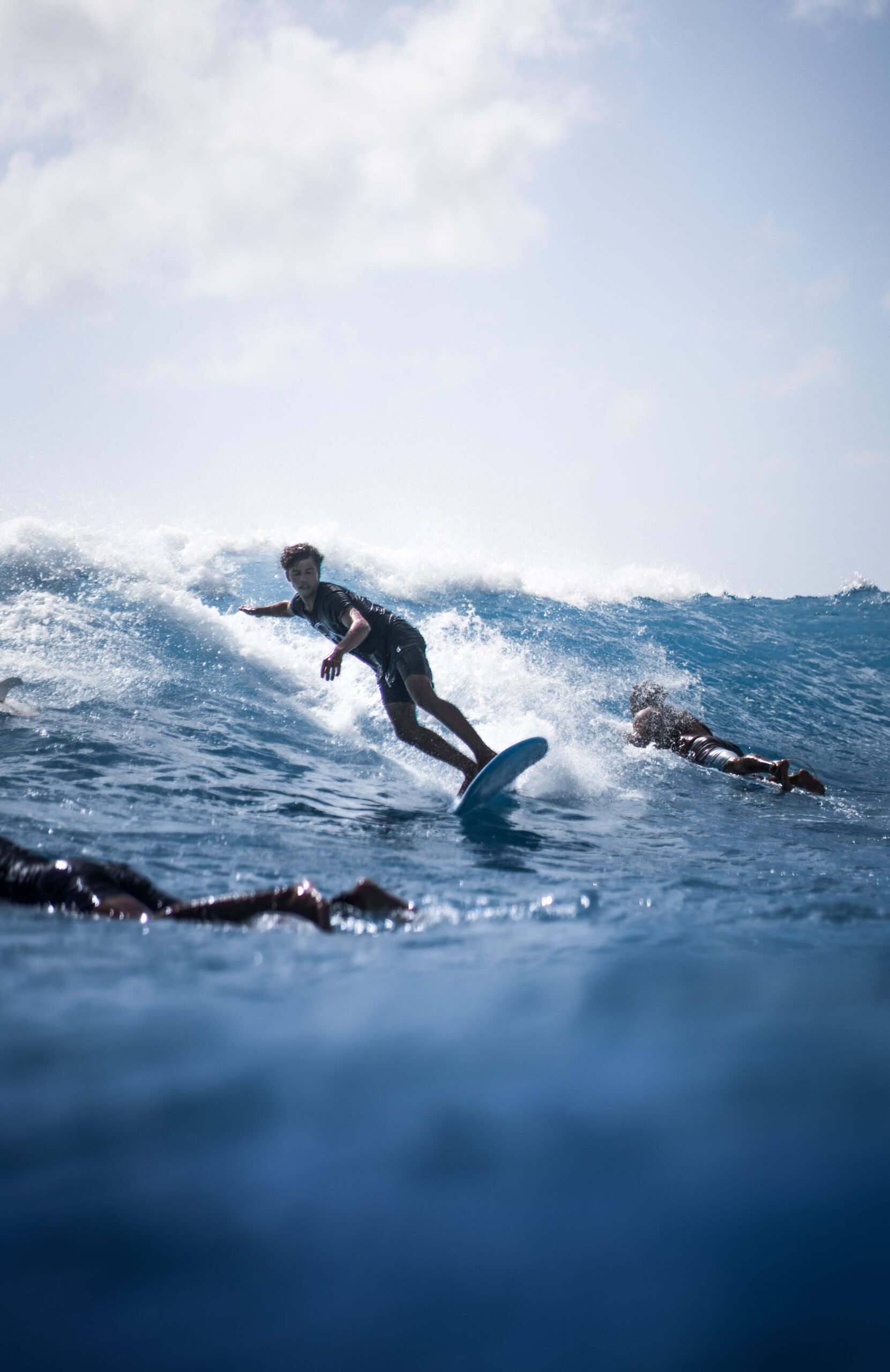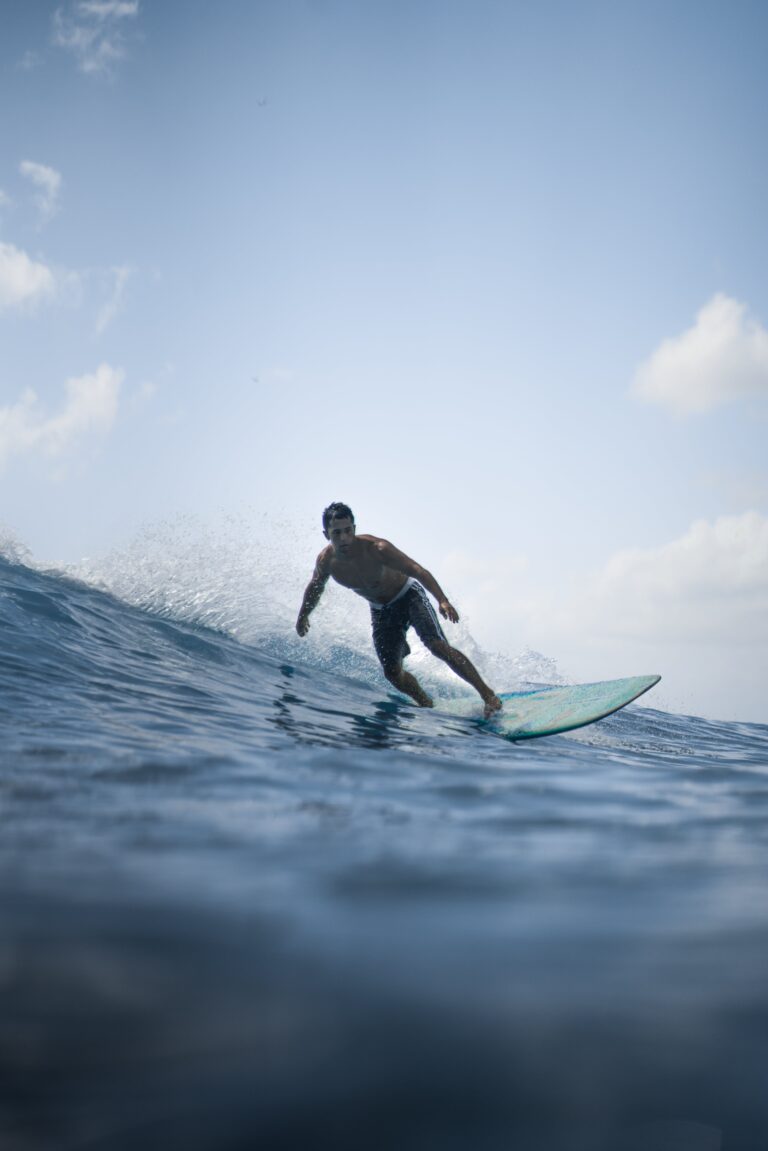Introduction
Surfing, a thrilling water sport enjoyed by many, and coral reefs, vibrant and diverse marine ecosystems, might seem unrelated at first glance. However, the impact of surfing on these fragile underwater worlds is profound. As the popularity of surfing grows, so does the importance of understanding and addressing its effects on coral reefs. Join us as we dive into the interconnection between surfing and coral reef conservation, exploring how this beloved sport can play a role in protecting these vital ecosystems.
Surfing’s Impact on Coral Reefs
While surfing provides an exhilarating experience, it’s crucial to recognize its potential impact on delicate coral reef ecosystems. Here’s a closer look at how surfing activities can affect these vital marine habitats:
Potential Threats to Coral Reefs
Surfing can pose threats to coral reefs in several ways. One significant concern is reef damage caused by surfboards. Reefs, with their fragile structures, can suffer physical harm when surfers inadvertently collide with them or when boards scrape across the corals. These impacts can break or dislodge coral polyps, disrupting their growth and leading to long-term damage.
Additionally, the activities of surfers, such as excessive kicking and standing on corals while waiting for waves, can further harm these sensitive ecosystems. Sediment stirred up by the movement can smother corals and affect their ability to photosynthesize, impacting their health.
Importance of Responsible Surfing Practices
Promoting responsible surfing practices is vital in preserving coral reef health. Surfers can significantly minimize their impact by following a few key guidelines:
- Choose Suitable Areas: Surf in designated areas away from shallow reef zones to avoid accidental collisions.
- Use Proper Equipment: Opt for soft-top or reef-friendly surfboards that minimize damage upon contact with corals.
- Mindful Movements: Be conscious of body movements while in the water, avoiding standing or stepping on coral formations.
- Educational Awareness: Educate oneself and others about the importance of coral reef conservation and the impact of surfing activities.
Adopting these practices not only protects the delicate balance of coral reef ecosystems but also ensures the sustainability of the surfing experience for generations to come.

Coral Reef Conservation in Surfing Communities
Surfing communities have emerged as passionate stewards of the oceans, actively engaging in coral reef conservation efforts. Through a fusion of enthusiasm for the waves and a deep-seated commitment to environmental sustainability, these communities have pioneered various initiatives, fostering a harmonious coexistence between surfers and the delicate ecosystems they cherish.
Beach Clean-ups and Restoration Projects
Surfing communities worldwide are leading the charge in organizing beach clean-ups and coral restoration projects. These initiatives not only remove debris and pollutants from coastal areas but also actively contribute to the preservation of coral reefs. Surfers, equipped with their dedication and determination, regularly gather to comb beaches for plastics, organize reef clean-up dives, and engage in coral planting activities, revitalizing damaged reef systems.
Awareness Campaigns and Education
Beyond physical efforts, surfers leverage their influence to raise awareness about coral reef conservation. From social media campaigns highlighting the perils facing marine life to educational workshops conducted in coastal towns, surfers play a pivotal role in educating both locals and visitors about the importance of protecting fragile marine ecosystems. Surfing events often double as platforms for advocating sustainable practices, disseminating crucial information on reducing plastic use and promoting eco-friendly behaviors.
Eco-friendly Surfing Events and Initiatives
Surf competitions and gatherings increasingly prioritize environmental responsibility. These events integrate eco-friendly practices by minimizing waste, promoting recycling, and encouraging the use of sustainable materials in surfing equipment. Moreover, some surf festivals actively fundraise for coral reef conservation projects, fostering a direct link between the thrill of surfing and the imperative need to safeguard the oceans.
Collaborations for Conservation
Surfers collaborate extensively with conservation organizations and local communities to amplify their impact. Partnerships between surfers, marine biologists, and environmental NGOs result in innovative conservation strategies. These collaborations foster a sense of shared responsibility, combining expertise, resources, and community engagement to protect coral reefs for future generations.
By championing these initiatives, surfing communities exemplify a harmonious synergy between their passion for the waves and a profound dedication to preserving the oceans’ invaluable ecosystems.
Minimizing Impact on Coral Reefs
Surfers play a vital role in preserving the health of coral reefs. To minimize their impact:
- Avoid Contact: Be mindful of your surroundings while surfing. Try to avoid contact with coral reefs, as even a slight touch can cause damage to these delicate ecosystems.
- Learn Entry and Exit Points: Familiarize yourself with designated entry and exit points to avoid paddling or stepping on coral. Utilize channels or areas recommended by local surf guides.
- Respect Marine Life: Admire the beauty of marine life from a distance. Refrain from chasing or touching sea creatures, allowing them to thrive undisturbed.
Reef-Safe Sunscreen and Eco-Friendly Gear
Choosing reef-safe sunscreen and eco-friendly surfing gear significantly contributes to protecting the marine environment:
- Reef-Safe Sunscreen: Opt for sunscreen brands that are free from oxybenzone and octinoxate, harmful chemicals known to bleach and damage coral reefs. Look for mineral-based sunscreens with ingredients like zinc oxide or titanium dioxide.
- Eco-Friendly Surfing Gear: Invest in gear made from sustainable materials like recycled neoprene or eco-friendly wetsuits. These alternatives reduce the environmental footprint of surfing equipment.
Encouraging Responsible Behavior
Encouraging responsible behavior among surfers promotes a sustainable surfing culture:
- Dispose of Waste Properly: Pack out what you pack in. Dispose of trash, especially plastics, responsibly. Participate in beach clean-ups and encourage others to do the same.
- Respect Local Communities: Respect local customs, traditions, and regulations. Support businesses that prioritize sustainability and contribute positively to the local community.
- Spread Awareness: Educate fellow surfers and beachgoers about the importance of protecting oceans and marine life. Engage in discussions and use social media platforms to spread awareness about sustainable surfing practices.
By adopting these practices, surfers can become ambassadors for sustainable living, ensuring that the thrill of riding the waves doesn’t come at the cost of damaging the ocean ecosystems. Together, through mindful actions, the surfing community can preserve the beauty of our seas for generations to come.
Preserving Coral Reefs: A Vital Mission
Coral reefs, often dubbed the rainforests of the sea, teem with biodiversity and play a pivotal role in marine ecosystems. However, they face an existential threat due to climate change, pollution, and human activities. Continual efforts to preserve these fragile ecosystems are crucial. Coral reefs provide a habitat for countless marine species, protect coastlines from erosion, and contribute significantly to local economies through tourism and fisheries.
Sustainable Surfing Practices: Educating for Conservation
Surfers have a unique connection with the ocean, making them natural ambassadors for marine conservation. Education and awareness among surfing communities about sustainable practices can make a substantial difference. Initiatives promoting the use of eco-friendly surfboards, minimizing plastic waste, and respecting marine life habitats while enjoying the waves are essential. Surfing events can also serve as platforms for educating enthusiasts about the importance of preserving coral reefs and adopting eco-conscious behaviors.
Collective Commitment for Ecosystem Safeguarding
The future of surfing is intricately linked with the health of our oceans, particularly coral reefs. It’s imperative for surfers, coastal communities, governing bodies, and conservation organizations to collaborate. Supporting and participating in coral reef restoration projects, beach clean-ups, and advocating for policies that protect marine environments are steps towards safeguarding these precious ecosystems. Additionally, fostering a culture of environmental stewardship within the surfing community can inspire a ripple effect, encouraging broader societal commitment to preserving our oceans.
As the custodians of our planet’s aquatic wonders, it’s incumbent upon us to act decisively. By championing coral reef conservation, promoting sustainable surfing practices, and fostering a collective commitment to safeguarding our oceans, we pave the way for a future where the thrill of surfing harmonizes with the preservation of our invaluable marine ecosystems.
Video Credit: National Geographic
FAQs
Q. How do surfers impact coral reefs?
A. Surfers can inadvertently damage coral reefs through contact with surfboards, making it crucial to adopt techniques that minimize these interactions.
Q. What are the main threats to coral reefs from surfing?
A. Pollution, physical contact with surfboards, and disruption of marine life habitats due to overcrowding are significant threats posed by surfing to coral reefs.
Q. How can surfers contribute to coral reef conservation?
A. Surfers can play a vital role by supporting eco-friendly surfing practices, participating in beach clean-ups, and actively contributing to reef preservation campaigns.
Q. Are there specific guidelines for surfing near coral reefs?
A. Some locations have established guidelines for surfing near coral reefs, emphasizing the importance of minimizing impacts on these fragile ecosystems.
Q. How does climate change affect coral reefs and surfing?
A. Climate change causes rising sea temperatures, leading to coral bleaching, impacting the health of reefs and consequently affecting the quality of waves for surfing.
Q. Can surfers participate in coral reef restoration efforts?
A. Absolutely, surfers often engage in reef restoration initiatives, planting coral and participating in rehabilitation projects aimed at restoring damaged reef systems.
Conclusion
Surfing isn’t just about riding waves; it’s about fostering a deep connection with the ocean and its delicate ecosystems. Coral reefs, the vibrant underwater cities teeming with life, are not just a backdrop for surfers but an integral part of the ocean’s health. By adopting responsible surfing practices, raising awareness, and actively participating in conservation efforts, surfers can become stewards of the sea, ensuring that the waves they love to ride continue to break against thriving and vibrant coral reefs. As the surfing community embraces sustainability, it paves the way for a future where the thrill of the sport coexists harmoniously with the preservation of these precious marine environments.
UP NEXT
Surfing in Vietnam: Riding the Waves Along the South China Sea



